This is a story about quicksand...
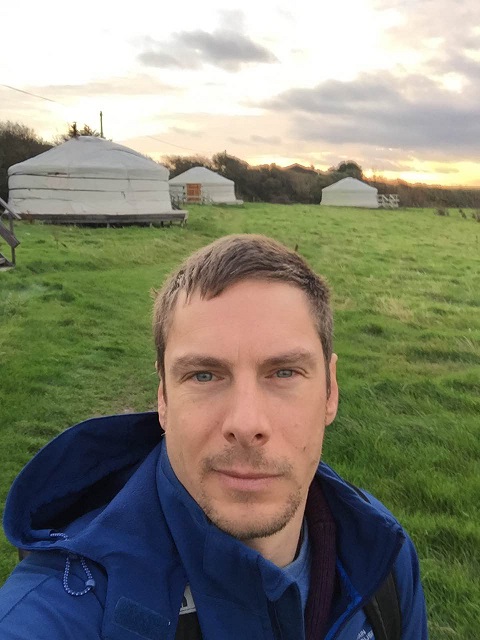
After being discharged from psychiatric hospital, what do you think you'd do next? Well, imagine that for months you have been travelling but you haven't been moving.
Things are not stable for me, no matter what my senses tell me. I go to the same office, looking at the same computer screen, surrounded by the same people, for months if not years on end. According to my senses I'm not moving anywhere.
However, my bank balance would tell a very different story. Just sitting mute in a chair, keeping my head down and being a perfect corporate drone who never rocks the boat, means that I am very rapidly travelling... financially. My body and mind don't really agree though.
My moods tell a very different story again. I don't necessarily notice seasonal effects and depression taking hold. I'm not fully able to tell when I'm getting hyped up and excessively involved in work or other projects. I'm not great at judging when it's time to take a break, either because I'm too down or too up.
It is unhealthy and unnatural that I work in the same place, doing the same thing, and working a job that moves at snail's pace. I just don't have the social life and hobbies at the moment to get any balance, let alone the financial means to travel, socialise and pursue pastimes with the usual gusto that I apply to everything.
What happens is that I become like a champagne cork. The pressure builds and builds, and then I explode with frustration.
My journey began with a two week stay in a psychiatric hospital, because I was so beaten down by the task of getting myself off the streets, back from the brink of bankruptcy, beating addiction, working on a massively important high-pressure project, renting an apartment, moving house for the zillionth time, and then realising that I was in an unsustainable situation: I needed to get rid of a 'friend' who thought he'd live with me rent free and get pocket money: for what reason he thought he deserved that, I'm not even sure. I also needed to quit a horrible contract that just wasn't worth the sleepless nights.
Next thing I knew, I was sleeping in a Mongolian yurt in Devon.
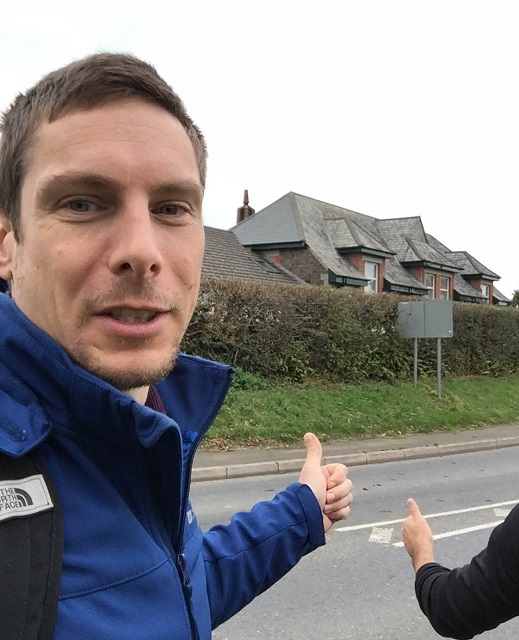
Then, I was surfing and hitch-hiking in Cornwall. Hitch-hiking is surprisingly hard, it turns out. Hitch-hiking is a bad way to get around if you have to be in a certain place at a certain time. I'd hitch-hiked once before, earlier in the year, in Ireland, but it turns out the Irish are a lot more friendly, helpful and trusting than the British, based on my anecdotal evidence.
Back in London after my Westcountry adventure, I still felt overwhelmed by depression and the feeling that I was trapped by my job. I had a lovely trip, but it had been very short and coming home was very anti-climactic. I knew I needed to quit my job, but I didn't quite have the guts to terminate a very lucrative contract.
I had made a plan a couple of months prior, to shame HSBC by sleeping rough in Canary Wharf, right by their headquarters. I found it deliciously ironic that they had inadvertently helped one of their customers to avoid bankruptcy, escape homelessness and generally improve their financial situation. I had no doubt that if they'd done their due diligence on me, then I would never have been employed to work on their number one project. I was planning on getting my contract terminated for no reason other than I cared about my job and was trying to do the right thing: acting with ethics and integrity.
But, I still had the contract like a millstone around my neck. I was desperately trapped and depressed about it.
I decided to fly to San Francisco and go to the Golden Gate Bridge. I wanted to illustrate how the desperation of my situation had driven me to contemplate suicide. I also wanted to go because I had planned to go 3 years earlier, but my parents had reneged on a promise and generally conspired to pull the rug out from under my feet at a time when I was terribly vulnerable. What they did was an awful thing, and I wanted to take that trip that I never got to make, because of their horrible behaviour.
I booked a flight for approximately 4 hours' time, packed a bag and left immediately. It's the most impulsive thing I've ever done in my life.
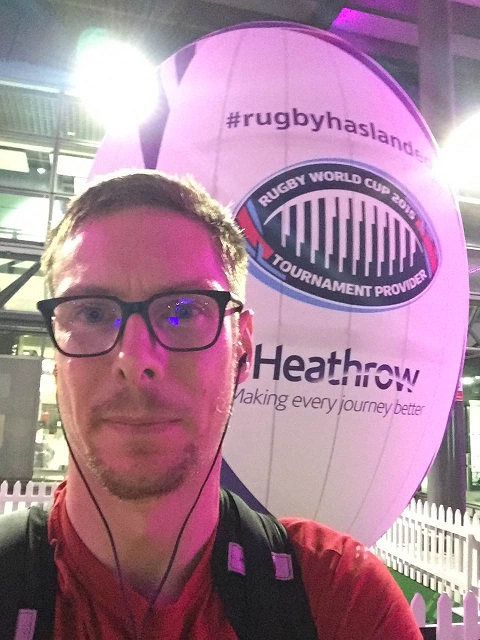
In San Francisco, a friend kindly picked me up and I dumped my bags at her house. I then borrowed a bike and rode to the Golden Gate Bridge. Less than 24 hours had elapsed since deciding to travel 5,351 miles. I stood in a jetlagged and travel weary state, peering over the edge, looking at the perilous drop to the sea below.
Travel, novelty, adventure, excitement, old friends, social contact, good weather... all of these things are the perfect antidote to depression. Who knew that the prospect of being chained to the same damn desk, in the same damn office, doing the same damn work you've done for 19 years, could lead to a tiny twinge of "Fuck My Life".
Obviously, the whole dumping your bags at your friends' place and then going off and killing yourself thing would be poor social etiquette. Plus I'd arranged to see an old schoolfriend while I was in San Francisco. The potential for positive experiences was massive. In the office, I had found myself hoping for a fire drill just because it would be slightly novel.
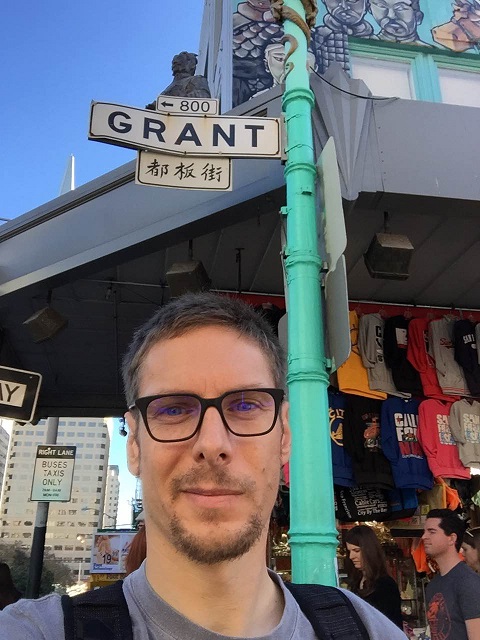
I'm no dumbass. I know it's important to stop and smell the roses. But, there isn't the time, energy or motivation to do so when you're trapped in the rat race.
In San Francisco I took delight in the simplest of things, like taking a selfie of myself by a road sign that matches my surname. I didn't even do any specific sightseeing or look at a map. I took a trolleycar because I saw one passing. I found myself by landmark buildings, just because I stumbled on them. I walked miles and miles.
My AirBnB host invited me out to a Halloween party. I dressed up. We drove to some house near Mountain View, where there were fascinating Silicon Valley tech people to meet from Google and Apple. That kind of shit generally doesn't happen when you're depressed working your desk job.
I got a tattoo to piss my parents off. My sister has several tattoos and my parents are always giving her a hard time about them. I thought that getting a tattoo would be some gesture of solidarity with my sister, and my parents would have to give both of us a hard time for having one. It was also a kind of souvenir from the trip, and a bit of reminder that I was going to try and stay in the land of the living for a little longer.
I caught up with a schoolfriend who I hadn't seen for years and years. He was supposed to be a mentor on a startup accelerator that I did in 2011, but he'd had to move back to California. It was great to see him, in the Mission district of San Francisco, even if we only had the briefest of time to catch up. Precious moments.
Meeting my friends' second child, and hanging out at their house reading stories to their eldest. Going with the kids to the science museum and playing with the interactive exhibits. Still etched in my mind.
Getting a glimpse into family life, valley startup life, California life... special.
Hanging out with some of the people who I have so much respect and love for... priceless.
I tried to provoke HSBC into terminating my contract immediately, by sending truthful emails, saying things that needed to be said, but were blatantly above my pay grade. Sadly, the mark of a corporate drone is somebody who's completely gutless and two-faced. They emailed me to say they just wanted to have a "routine chat" with me when I got back. No matter how hard I pushed, they wouldn't admit that my contract was effectively terminated, which is what I wanted so I could stay in the USA longer.
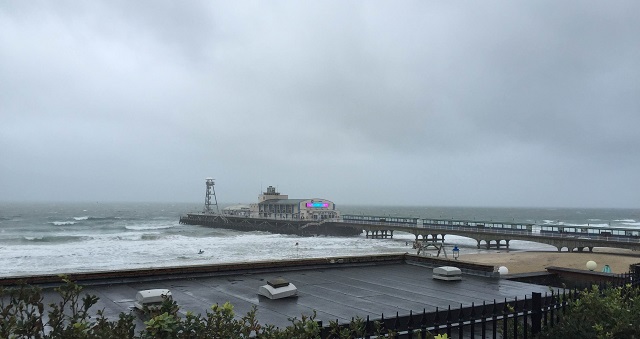
I came home. I went into the office and exploited the fact that nobody would be straight with me. I kinda got my goodbyes from everybody, even though they were "great to see you back in the office" but only those who were nice genuine people seemed to be unaware that the long knives were drawn. I loved the look of shock on the faces of those whose incompetence I had exposed.
I shaved my stupid beard and kept my moustache, because it was now November. There's no greater pleasure than having your contract terminated from a 'straight' job, when you're wearing a stupid moustache and you have a tattoo. This was all part of the plan in preparation for the sleeping rough by HSBC headquarters anyway.
Then, I was deflated again.
It'd been a helluva journey. Psychiatric hospital, Devon, Cornwall, Mongolian yurts, surfing, hitch-hiking, sleeping on the floor of New York's JFK airport, cycling over the Golden Gate Bridge, sightseeing in Silicon Valley, old friends, nice work colleagues, miserable office drones, contract termination... relax!
Bonfire night - November 5th - I was still pretty hyped up. For some reason I decided that I wanted to whizz around London giving out brightly coloured cardboard stars. I think I spent 90 minutes from conceiving the idea, to then whizzing round London sticking stickers on stuff, giving out stars, losing my luggage and generally careering out of control somewhat. That was classic hypomania. What gets held down must go up. It was such a relief to be released from my soul-destroying contract that the nervous energy almost demanded to be released by doing something crazy.
I decided I needed to see some neglected UK friends. I zoomed down to Bournemouth and stayed in the Royal Bath Hotel by the pier. I met up with one of my most loyal friends, and met his son, caught up with him and his wife, saw their house. I caught up with another friend. Friends who had offered to take me kitesurfing didn't materialise, but it didn't matter... I'd already had a very action-packed trip.
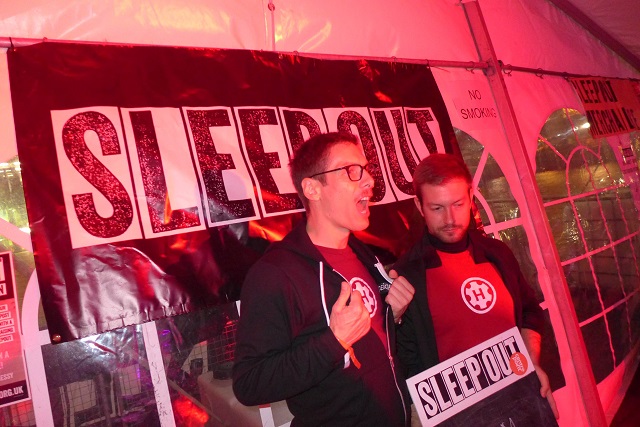
Then, finally, the night of the sleep out came. Lots of things got conflated in my mind: "Hacking" humanity, Techfugees, homelessness, bankruptcy, HSBC's unethical behaviour, soul-destroying bullshit jobs and the unbelievably erratic, exhausting, stressful path I had taken to reach that point.
I always knew that keeping moving is the answer to staying alive, but there's so much financial incentive to be trapped into a chair, chained to a desk, not moving anywhere, not doing anything, not talking to anybody.
As I burnt through my money on rent and bills over the winter months, I knew the day would come when I'd have to go back into the rat race, and it depressed the hell out of me. By Christmas Day I was in a pretty shitty state. By New Year's Eve I was cutting my arms with a razor blade.
For the last 4 months, I've sat at my desk, not saying anything. For the last 4 months, I haven't rocked the boat, I haven't tried to improve anything, I haven't tried to do a good job. For the last 4 months, I've kept a low profile. My bosses couldn't be more pleased. My bank balance is much improved. In theory, my mental health should have done something but it doesn't feel like my mood's done anything but sink.
How am I supposed to reconcile the drudgery of the rat race with the excitement of the crazy tale that led me here? When I look back 6 months, 12 months, 18 months, things were very different. Are things better? It doesn't feel like it.
I'm still not moving, I'm not travelling. I still don't have my needs met.
If I want to survive, I need to be moving. It's not sustainable for me to stagnate. I wasn't built to just sit and rot at a desk.
If I stop moving, I sink into the quicksand.
Tags: #depression #suicide #bipolar #career #startup #computing #homeless #addiction


